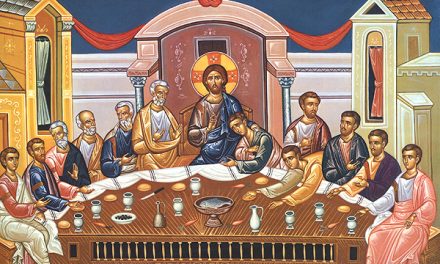Twenty-fifth Sunday in Ordinary Time
Lectionary: 135
AM 8:4-7
PS 113:1-2, 4-6, 7-8
1 TM 2:1-8
LK 16:1-13
 Having trouble understanding our gospel reading for this 25th Sunday in ordinary time? You are in good company. Our parable of the “unjust steward” or the “wicked household manager” is certainly not as comprehensible as some of Jesus’ other parables. Here are a few interpretive points taken from Luke Timothy Johnson’s Sacra Pagina commentary.
Having trouble understanding our gospel reading for this 25th Sunday in ordinary time? You are in good company. Our parable of the “unjust steward” or the “wicked household manager” is certainly not as comprehensible as some of Jesus’ other parables. Here are a few interpretive points taken from Luke Timothy Johnson’s Sacra Pagina commentary.
First, Jesus is talking to his followers here, not his adversaries, in order to teach them something important about the coming of their Lord. The crisis of the story begins when the steward is called to make an account of his action to his master (16:2), his kyrios, or Lord. The steward is able to respond well to the crisis by continuing to “squander the property.” He is commended for acting prudently because he he did what needed to be done to gain new friends, namely those who owed his master wealth. So too, the response to the coming of our own Lord should be to “squander,” if you will, the goods that are owed to our own earthly masters in order to gain heavenly friends.
Second, the parable is clearly concerned with possessions . Johnson writes “In the light of Luke’s language elsewhere about laying up treasure in heaven (12:33) there can be no doubt that this saying refers to almsgiving.” Johnson goes on to write,
In verse 11, the contrast is specified in terms of possessions. We can, in fact, understand each of them in these terms: the lesser reality refers to possessions, the greater to the disposition of the self before God. his, possessions as such are ‘tiny,’ but reliability or wickedness in their use indicates reliability or wickedness in the response to God (v. 10). The failure to dispose of ‘wicked mammon’ reliably will lead to one’s not being entrusted with what is genuine (v. 11).
In other words, the way we disperse or squander our wealth says something critical about our true self and our stance before God. If we are truly preparing for the coming of our Lord, we should have a certain detachment to the wealth of this world. It belongs to another master anyway, Mammon, the personification of an idol. Giving away these possessions in almsgiving wins us favor with God. We can’t serve both masters.
Charitable giving is kind of an embarrassing topic for Christians. If we look at those who are relatively well-off (incomes between $100,000 and $200,000) we see about 2.6% of that annual income going to charitable contributions. This is pretty paltry. Incomes below $100,000 do a bit better (3.6% going to charitable giving) and for those about $200,000 (3.1%). Still, this does’t seem like the sort of “squandering” of wealth the parable has in mind.
Luke’s financial ethic is notoriously difficult, but readings such as this Sunday’s offer a much-needed opportunity to evaluate our own allegiances and question seriously which master we truly serve.



